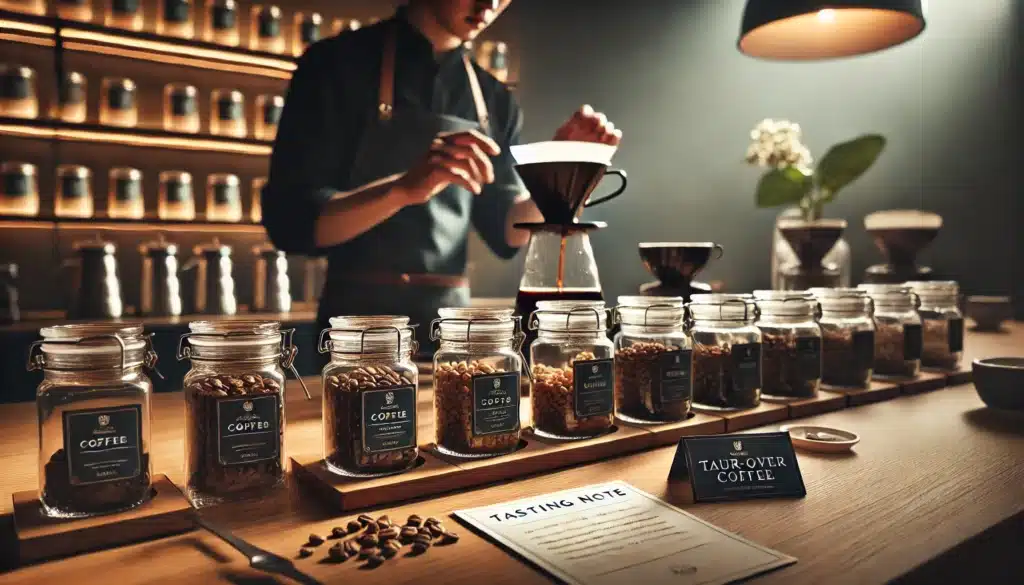Gourmet coffee has become a staple for coffee enthusiasts around the world. But with prices often higher than regular coffee, the question remains: Is gourmet coffee really worth the investment?
In this article, we’ll explore the world of premium coffee, what sets it apart, and whether its higher price tag is justified by taste, quality, and ethical considerations.
1. What Is Gourmet Coffee?
Gourmet coffee is often synonymous with premium coffee, referring to high-quality beans that are grown, processed, and roasted with meticulous attention to detail. Key factors include:
- Single-origin beans from specific farms or regions
- Specialty-grade quality beans with distinctive flavors
- Expert roasting that brings out unique flavor profiles
Gourmet coffee aims to provide a superior experience, showcasing the best that coffee has to offer.
2. The Price Tag: Why Is Gourmet Coffee So Expensive?
The higher cost of gourmet coffee can be attributed to several factors:
- Sourcing premium beans from specific regions or farms
- Labor-intensive processes like hand-picking and careful processing
- Small-batch roasting and packaging to preserve freshness
These factors contribute to limited supply, which can drive up prices, especially for rare and high-quality beans.
3. The Importance of Quality in Gourmet Coffee
Quality is the defining characteristic of gourmet coffee. It’s produced from beans that meet high standards:
- Flavor profile: Each batch is evaluated for balance, aroma, acidity, and body
- Farming practices: Many gourmet coffees are grown using sustainable, organic methods
- Freshness: Gourmet coffee is roasted in smaller quantities to maintain optimal flavor
With its focus on quality, gourmet coffee provides a richer, more nuanced drinking experience.
4. Specialty Coffee vs. Gourmet Coffee
While specialty coffee and gourmet coffee are often used interchangeably, they are distinct:
- Specialty coffee refers to coffee that scores 80 points or higher on a 100-point scale from certified graders
- Gourmet coffee refers to premium-quality coffee that may or may not meet specialty standards
In essence, all specialty coffee is gourmet, but not all gourmet coffee meets specialty-grade standards.
5. Is Gourmet Coffee Healthier?
Some consumers believe that gourmet coffee is healthier than regular coffee due to the higher-quality beans and sustainable farming practices. However, the health benefits are not necessarily related to the gourmet label.
What sets gourmet coffee apart in terms of health:
- Antioxidant levels: Premium beans often have higher antioxidant content
- Fewer chemicals: Many gourmet coffee beans are grown organically, reducing exposure to pesticides and fertilizers
While the health benefits may be modest, the quality of the coffee can contribute to a cleaner, more enjoyable cup.
6. The Coffee Drinking Experience
Gourmet coffee is not just about the taste — it’s about the experience. When you drink premium coffee, you’re engaging with the product in a more meaningful way. Consider:
- Tasting notes: Gourmet coffee has distinct flavors like fruit, chocolate, floral, or nutty that make each cup unique
- Freshness: Small-batch roasting ensures that the coffee retains its peak flavor
- Brewing rituals: Coffee enthusiasts often invest in manual brewing techniques (e.g., pour-over, French press) to get the most out of their beans
The experience of enjoying gourmet coffee goes beyond caffeine — it’s a journey of discovery.
7. The Ethics Behind Gourmet Coffee
Many gourmet coffee brands prioritize ethical considerations, including:
- Fair wages for farmers and workers
- Sustainable farming that preserves the environment
- Direct trade relationships between roasters and producers
By supporting ethical brands, consumers are helping to create a more equitable coffee supply chain.
8. How to Choose Gourmet Coffee
Choosing the right gourmet coffee requires some knowledge and experimentation. Here are some tips:
- Read labels for details about the farm, roast profile, and certifications (e.g., organic, Fair Trade)
- Experiment with brewing methods to find the one that best suits your flavor preferences
- Look for freshness — the best gourmet coffee is freshly roasted and ideally consumed within 2–3 weeks of roasting
Taste is subjective, so take time to find the coffee that suits your palate.
9. The Cost vs. Value Debate
While gourmet coffee is expensive, many consumers feel the investment is justified because of the:
- Superior taste and flavor variety
- Ethical sourcing and sustainability
- Personal enjoyment of a premium product
For some, the enjoyment of a quality cup of coffee is well worth the cost, while others may prefer to stick to more affordable options.
10. The Future of Gourmet Coffee
The future of gourmet coffee looks promising, as more consumers demand higher-quality, ethically sourced, and sustainable coffee. Key trends include:
- More accessible premium options at local cafés and roasters
- Innovations in brewing technology that enhance flavor
- Expansion of sustainable and fair trade practices in coffee production
As the coffee industry grows, the demand for premium and gourmet coffee will likely continue to rise.
Final Thoughts: Worth the Investment?
Gourmet coffee offers more than just a caffeine fix — it’s an investment in quality, sustainability, and a more meaningful coffee experience. Whether you choose to invest in it depends on your preferences, values, and willingness to explore the world of fine coffee.
For many, the richer flavors and ethical sourcing make it well worth the extra cost.







